- Home
- Robert J. Crane
In the Wind (Out of the Box Book 2) Page 2
In the Wind (Out of the Box Book 2) Read online
Page 2
So, basically, like herself.
Anyway, that did not go over well in the media, where it was felt that she was perhaps being a little obnoxious to Gail Roth, a well-established, well-liked mama badger and proxy for every reporter out there. The news panel shows turned pretty ugly for the next few days, and the Department of Homeland Security made some bullshit excuse and canceled every other appearance they’d had Sienna scheduled for. It looked bad, but sending her out to do more interviews probably would have been worse. A lot worse.
But oh, how they loved to trot out clips from the interview for entertainment value. They always seem to cut them just right, too, to make Sienna look even more petulant.
Thankfully, the bar’s TV is on mute. I carefully avert my eyes from the scrolling black box of text running across the bottom of the screen with its frequent misspellings. I have a margarita in front of me, the remains of a quesadilla staring up from my plate, and I decide I ain’t got time for this shit. I’m about two seconds from speaking up to get the bartender to change it when loud, obnoxious voices—probably cable news anchors—reach my ears.
“I’d like to show her my power,” one guy down the bar says to his buddy next to him. They’re both wearing suits, their ties loosened, a full beer mug in front of each of them. Sitting their fat, middle-aged asses on the blue bar stools, a barely sober mess in the middle of the cantina. The cantina is an explosion of color. These two assclowns are a black hole in the middle of the place, all serious business. Except for what they’re saying. It’s serious bullshit.
The second guy chuckles, waiting to hear the joke. “You’re not one of them, are you? You ain’t got a power, do ya?”
“My power,” the first guy says, and he’s just barely slurring, any good judgment he has washed away in the river of beer he’s taken down, “is to rock her bed all—night—long.” He emphasizes each syllable of the last three words with perverted glee, and his companion is beset by a wicked case of the giggles.
A gust of wind—sudden, violent, and strangely out of nowhere—blasts the stools from beneath both of their asses and they topple to the floor. There’s a clatter as other furniture is disturbed by this mysterious atmospheric phenomenon, this strange wind that blows from down the bar, originating … well, gosh, just about from my seat. How about that. Weird, huh?
Their landings are spectacular. Both are doused with beer, unprepared for the sudden meeting of their asses and the cold tile floor. I take a drink of my lovely margarita to hide my pride in making the introduction. There are protestations of surprise, bewildered confusion from both the drunks as well as the bartender and the wait staff. During the commotion I finish my margarita and order another one. I nibble on the quesadilla, even though it’s gone cold, and find it surprisingly satisfying.
I stay a while longer, through a few more margaritas, but stop short of getting completely tanked. When the moment arrives, I shuffle past the drunkards, now sipping a complimentary beer, mumbling to each other about that oh-so-strange experience they had. They’re buffoons at best, assholes at worst, and I feel no remorse for what I did. It feels good, in fact, albeit petty. Don’t mess with my family.
I almost make it to the door, and then I send them another little gift of wind. They hit the floor sputtering, their fancy suits drenched from top to bottom in their fresh beers. I try to keep from laughing as I stagger toward my gate, hoping I’ll be able to sleep on the plane.
3.
Rome is quite a town. If you’ve never been, you should go. I will caution you about a few things, though:
You will see many feats of driving excellence in Rome. Many will involve the moped, which seems to be the preferred national mode of transportation. Moped drivers are exempt from the laws of all logic and reason, and drive like those Ministry of Magic cars in Harry Potter, finding gaps in traffic and slipping through even the most improbably small holes like they’re greased. Okay, it’s mostly because they’re as crazy as cab drivers, but still. Which brings me to point two:
The cabbies in Rome are nuts. This is in addition to piling multiple people in a cab at the airport. It’s like a commuter van, except you all have to pay a cab rate, and they drop you off in sequence. Hope you’re first, not last, because it’s a real shit-fest when you’re stuck going an hour out of your way to drop off some German tourist who can make lame puns in English. Cabbies in Rome make New York cab drivers look like rank amateurs in the crazy-as-hell department.
The city is organized, but in kind of a nutty way. Not quite as narrow of alley and passage as, say, London, but it’s still a mess of building and rebuilding that goes back to ancient times and probably before.
Also, odds are good that you’re going to have a hell of a time finding a decent-sized bed. Just fair warning.
I spend an hour in the cab, no shit, before I get dropped off at my hotel, which is paid for by my sister’s agency and my Uncle Sam. The hotel has the words “Five Stars” in the name, but is not anywhere close to a five-star hotel otherwise, the lying bastards. I get my little narrow bed, with another lonely one just beside it, a plank of wood nailed to the wall that’s maybe supposed to be a desk, and I have to be happy about it, because let’s face it—I wouldn’t be here on my own. Rome is also a pretty expensive city, and at twenty-five, I’m probably a little old to stay in a youth hostel. Possibly also a little too clean-shaven.
I bounce around my room long enough to unpack the basics, and then I’m out the door again. There’s a café near the Piazza Navona that I’m bound for, and I hop a taxi. Once again, I see many feats of driving excellence. I get the feeling it’s like a battle to the cabbies, like they’re fighting a lonely war against every other car on the road. I don’t know Italian well enough to tell if this lady is swearing under her breath or not, but my euros would be on yes.
She lets me out in front of a door after driving me in a long-ass circle around a block. I can’t read the name of the place, and it wouldn’t make much sense to me even if I could. On my earlier trips it always seemed like everyone in Rome spoke English, and I doubt everyone has forgotten the language in the last few months.
I breeze into the café, past a cooler full of panini sandwiches prepared for tourists wandering the cobbled streets with sore feet and rumbling stomachs. My stomach rumbles, too, but I’m busy. I nod at the guy behind the counter, and he nods back, even though he has no idea who I am. I get the feeling that happens a lot in this particular café. I make my way past all the battered tables and chairs, ignoring the smells that tempt me to stop and get a sandwich of my own—one that’s bursting with mushrooms catches my eye—and enter a portal in the back. Bathrooms wait to my left, and their smell is projected into the hallway in which I stand. To my right is a white door, flecks of paint falling off. It looks like it hasn’t felt the touch of a fresh brush since the days when Mussolini was giving speeches.
I push at the door, let it crack open. It squeals, makes a little noise to let me know it doesn’t appreciate me touching it, but swings open even so. My eyes start to adjust to the dim.
Before I can see, though, I feel something sharp against my belly, and I hold my breath. There’s not so much as a threat, a warning, nothing—before I feel it poke me, hard, telling me everything I need to know about the intentions of the person standing just inside the door.
4.
This isn’t the first time I’ve had a knife on me, but it’s certainly more novel nowadays than what I’m used to, which is guns. Guns are scary. I can’t dodge a bullet, can’t blast it out of the way. I hold my hands up in the air, reaching for the sky like it’s something I can touch. Well, maybe I sort of could touch it, being an Aeolus.
Words of Italian are breathed in the dark, and I feel the pinch of frustration. I don’t speak Italian. I know, ugly American, working in Rome, doesn’t speak the language. This is the sort of thing the French want to murder their tourists for. But in my defense, a) I wasn’t in Rome THAT MUCH, and b) almost all the Italians I’ve
met speak enough English to make conversation possible. They’re amazing in that regard. Friendly, warm, wonderful people.
Except for this bastard holding a knife to my gut. If he were a pro, he’d hold it to my neck.
Another burst of rapid-fire Italian fills my ears, florid and completely incomprehensible. I ponder being a dick and muttering, “No comprendo,” but it feels too stereotypical. “I don’t understand,” I say instead.
There is a pause in the dark, and I hear the click of a lamp. “Reed Treston,” says a deep Italian voice, with all the rolling syllables that come with it. It’s an old voice, filled with years and wisdom, and hints at hundreds of thousands of cigarettes smoked.
“Giuseppe,” I say in reply, nodding my head. He notices for the first time that while my hands are in the air, my palms are pointed directly at him, ready to send him into a wall with a gust of wind at the first hint of applied pressure on the knife’s edge.
Giuseppe hastily throws the knife upon a nearby desk with a clatter. He’s lit a desk lamp, one of those kind that bend so you can study papers up close with blinding light. I watch his face for reaction, but he doesn’t give much. Tossing the knife was a good start.
Giuseppe is probably in his sixties, with dark, olive skin and a shock of white hair that crowns him. He looks like a mafioso, like something out of The Godfather, but his humble surroundings reveal that he’s no Michael Corleone. We’re standing in a storage room that he’s made into his office, and the cot in the corner tells me a lot about how he’s living, too.
If this were a movie, this would be the point where he claps me on the back, embracing me like a lost son or a favorite nephew, demonstrating our long, deep history. You know what I’m talking about? Where the cool main character shows he’s beloved by everybody, everywhere, because he has friends in places you can’t imagine?
Yeah, that doesn’t happen here. Giuseppe tosses the knife; that’s about the only concession he’ll make on my behalf. “It has been a long time, my friend,” he says. But he’s just being Italian in calling me his friend, and I know it and he knows it.
“Alpha fell,” I say, lowering my hands. He knows I’ve got power. Giuseppe’s an information broker, trading in details and dealing in nuggets. I’m sure he sells other stuff, too, but I don’t want to know about it. “I’ve been working out of town.”
“The sound they made when falling did not escape even my diminishing hearing,” Giuseppe says with a wave. He’s being modest about the hearing part. Giuseppe could hear a dollar fluttering to the ground in the breeze. Or maybe he’s being really literal, and he’s going actually deaf. He settles his slightly rotund figure upon the desk. “I miss them.”
I feel my eye twinge. “You miss their money.”
“Which is why I am so glad to see you, my friend,” he says, his wolfish grin widening. “Roma is the town of amore, but love does not come cheap.”
“Still chasing the vino, women and song, huh, Giuseppe?” I take a glance at his desk; it’s covered with papers sliding in every damned direction.
“As I said before, I am not hearing as well anymore, so I have had to lay off the music,” Giuseppe says.
“But not the wine or the women?” I ask.
He’s still smiling, but it gets deeper. “Some sacrifices are not worth the making.”
“Uh huh,” I say, deciding to cut to the point. “I’m here for info.”
He makes a gesture with both hands that is totally Italian, that takes in the whole shabby setting around us, and it says, Obviously. Because no one comes back here for the ambiance.
“Friends of mine,” I say, being cagey, “picked up word about a couple former operatives of Alpha that are still in town.”
Giuseppe picks up a pen and a pad that’s barely big enough to take a drink order on. He clicks the ballpoint down and looks like he’s ready for transcription. “Do these people have a name?”
I’m blushing. “Uh … ‘Wrench’ and ‘Axis.’” He gives me the skeptical look and I feel compelled to add to that. “Probably not the names their mothers gave them. It comes from an email.”
He sets a wary eye upon me. “This thing … will take some doing.”
“How much … doing?” I ask, cutting to the chase.
He shrugs, very continental, very inscrutable. “Some.”
Fortunately, this I’m prepared for. “I’ve got a thousand euros for you to start with, possibly more depending on what you end with.”
He arches a long, white eyebrow. “I would prefer no end. In fact, if we could come to an accommodation as I had with your previous employers …”
I’m definitely not authorized for that; the agency Sienna runs doesn’t interface well with CIA, and I am fairly certain they run the spies in the government. If we were still in charge of ourselves, I might have been able to do something. “Start with this,” I tell him, focusing on maintaining my poker face, “then we’ll talk.”
He brightens, just a hint. “Is there anything else?”
I blink. “What else would there be?”
He’s got a smug sort of smile, a small one, very contained, very much an enticement. “I could include some other things of interest at the right price—such as other movements in Rome, and the area, of your kind …” He widens the smile, knows he’s set the bait and left the hook dangling oh-so-perfectly … “Perhaps an introduction to others in the area?”
It’s not my money, so I toss a few euros on the hook. “Sure. Give me what you’ve got.”
He bows his head, his smile satisfied. “I will need a few hours.” He sounds really official, and I get the sense that Giuseppe’s wine and women are a very expensive habit. “Come back tonight? Say around … nine?”
I think in Italy that “nine” means more like “ten or later,” but I nod. I’ll still be here at nine; it’s not like I have anything else to do, and I’ve still got my very American sense of timing. “See you then,” I say and leave back the way I came, out through the café and into the sun-kissed alleyways of Rome.
5.
Anselmo
Anselmo Serafini looks out upon the valley below his hilltop villa, taking in the whole of Firenze—the Americans call it Florence, but this version of the name, so very feminine, bothers him—and he lets a small, satisfied sound escape his lips.
Everything moves according to plan. His plan. Months of effort, of putting in the time, of building the alliances.
He has a cigar in his hand, and its smoke gently wafts off the overlook. Trees surround him, the greenery a beautiful oasis in the heart of Italy. He stands and sniffs the fresh air, far removed from the hustle and bustle that chokes the streets of Firenze itself. He has a great disdain for them, these tourists. But he likes their money, likes the way it flows into the hands of local business …and how he reaches his own hands out and takes a little here—a small fee to insure that those business do not come to misfortune.
“Capo,” he hears softly from behind him, and he turns, taking a puff from his cigar. It is a rich, heavy flavor, and it would mingle well with the drink he should have in his hand. But there is no drink, and he thinks that this is a great shame, and makes a note to summon a servant to bring him one as soon as this young man has his say.
Anselmo has known Lorenzo Benedetti for most of the young man’s life. He has rugged good looks, with a hint of a scar across his nose. His hair is long, tucked back behind him in a ponytail, as many of the youth do these days. It does not bother Anselmo, though he keeps his own hair quite a bit shorter. Lorenzo’s sleeves are also short, even in the slightly brisk air, and Anselmo can see the hints of tattoos peeking out from the muscled, darkened biceps. A snake head is barely visible—
“Capo?” Lorenzo calls again, and Anselmo is stirred out of his reverie.
“Si?” Anselmo says. “What is it?” He has patience, all the patience in the world for this young man. So valuable. So precious.
So rare.
“One of our contacts in Rome,
” Lorenzo says. He has a tightness in his face that bespeaks his concern. Lorenzo worries too much, Anselmo thinks, he frets over the slightest things. Lorenzo is a details man—or boy, sometimes—though, and it is good to have a details man on the payroll; Anselmo knows this through long experience. Lorenzo frets so Anselmo does not have to, and this is fine. Anselmo is nearly one hundred years the senior of Lorenzo, after all, and has quite enough on his mind without the additional cares. “He has been … approached … by a long-time information broker. He has mentioned …” Lorenzo’s face twists, “… my code name.”
Anselmo lets out a hearty, belly laugh that he cannot help. His sense of absurdity is the only thing that keeps him from seizing Lorenzo by the cheeks—those strong, masculine cheekbones—and forcing him into a chair, pushing a drink into his hand and lighting a cigar in his mouth. The boy worries, always, and about the most absurd things. “Your code name?” Anselmo says, not bothering with a straight face.
Lorenzo clearly does not find this funny. He darts past Anselmo, and Anselmo watches this furtive, jerky movement with great amusement. A glass of vino or brandy could only make this better. Lorenzo speaks. “Someone has read my emails.”
Anselmo smiles around the cigar, keeping it tight in his lips. “Yes, even I, in my backward ways, hear this is possible these days. Is why I try to keep our business … how do you say it? Offline?” He shrugs. “You never know when the Carabinieri are listening.”
“This is serious, Capo,” Lorenzo says. The young man is flustered, reeks of a teenager’s cologne, sharp and far too sweet for Anselmo’s nose. He can almost taste it, and it affects the flavor of his cigar for a moment. “No one should know this! They could know about my … dealings. For the plan.” He says the last word furtively, as though there is a Carabinieri operative in the bushes listening to them at this very moment.

 The Girl in the Box Series, Books 1-3: Alone, Untouched and Soulless
The Girl in the Box Series, Books 1-3: Alone, Untouched and Soulless Alone: The Girl in the Box, Book 1
Alone: The Girl in the Box, Book 1 Lies in the Dark
Lies in the Dark Cold
Cold The Gang of Legend
The Gang of Legend Control: Out of the Box (The Girl in the Box Book 38)
Control: Out of the Box (The Girl in the Box Book 38) Someone Should Save Her
Someone Should Save Her Ghosts of Sanctuary
Ghosts of Sanctuary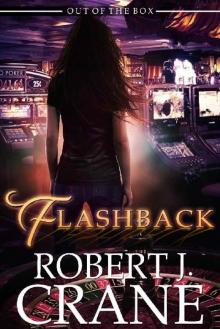 Flashback (Out of the Box Book 23)
Flashback (Out of the Box Book 23)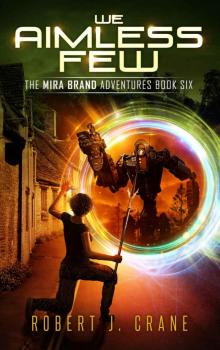 We Aimless Few
We Aimless Few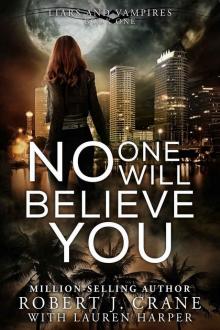 No One Will Believe You
No One Will Believe You The King of the Skies
The King of the Skies Apex
Apex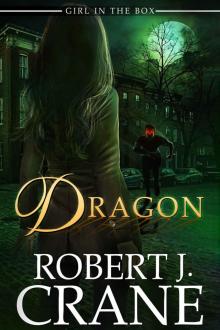 Dragon: Out of the Box (The Girl in the Box Book 37)
Dragon: Out of the Box (The Girl in the Box Book 37) Call of the Hero
Call of the Hero Blood Ties
Blood Ties A Home in the Hills
A Home in the Hills Heir of the Dog (Liars and Vampires Book 6)
Heir of the Dog (Liars and Vampires Book 6)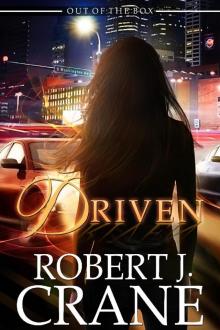 Driven
Driven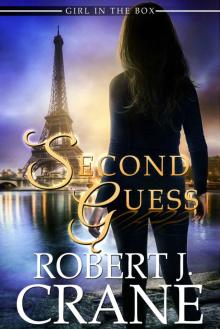 Second Guess (The Girl in the Box Book 39)
Second Guess (The Girl in the Box Book 39) A Respite From Storms
A Respite From Storms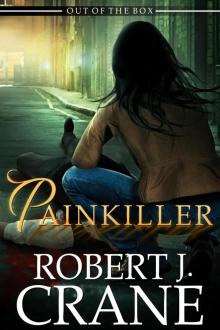 Painkiller
Painkiller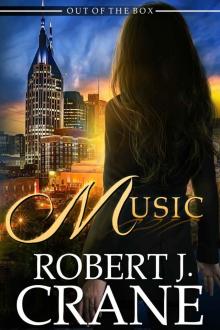 Music: Out of the Box 26 (The Girl in the Box Book 36)
Music: Out of the Box 26 (The Girl in the Box Book 36) Untouched tgitb-2
Untouched tgitb-2 Unyielding (Out of the Box Book 11)
Unyielding (Out of the Box Book 11)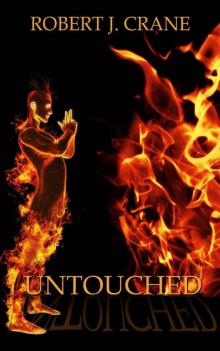 The Girl in the Box 02 - Untouched
The Girl in the Box 02 - Untouched The Sanctuary Series: Volume 02 - Avenger
The Sanctuary Series: Volume 02 - Avenger Soulless tgitb-3
Soulless tgitb-3 Hunters (Out of the Box Book 15)
Hunters (Out of the Box Book 15) Toxicity (Out of the Box Book 13)
Toxicity (Out of the Box Book 13) Ruthless (Out of the Box Book 3)
Ruthless (Out of the Box Book 3) Thy Father's Shadow (Book 4.5)
Thy Father's Shadow (Book 4.5) Power
Power Alone tgitb-1
Alone tgitb-1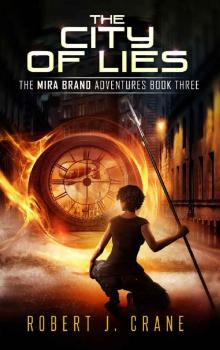 The City of Lies (The Mira Brand Adventures Book 3)
The City of Lies (The Mira Brand Adventures Book 3)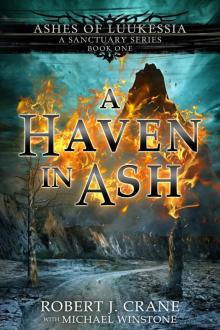 A Haven in Ash
A Haven in Ash Family
Family Sanctuary Tales (Book 1)
Sanctuary Tales (Book 1) Hero
Hero Her Lying Days Are Done
Her Lying Days Are Done![Crane, R [ Southern Watch 03] Corrupted Read online](http://i1.bookreadfree.com/i1/04/02/crane_r__southern_watch_03_corrupted_preview.jpg) Crane, R [ Southern Watch 03] Corrupted
Crane, R [ Southern Watch 03] Corrupted Tormented
Tormented Badder (Out of the Box Book 16)
Badder (Out of the Box Book 16)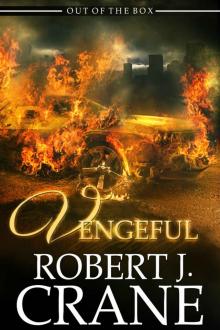 06 - Vengeful
06 - Vengeful The World Beneath (The Mira Brand Adventures Book 1)
The World Beneath (The Mira Brand Adventures Book 1) Heretic (The Sanctuary Series Book 7)
Heretic (The Sanctuary Series Book 7) Omega tgitb-5
Omega tgitb-5 The Tide of Ages (The Mira Brand Adventures Book 2)
The Tide of Ages (The Mira Brand Adventures Book 2)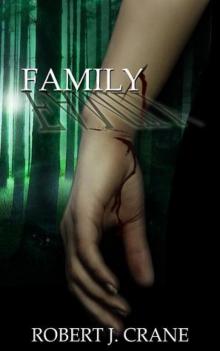 Family tgitb-4
Family tgitb-4 The Southern Watch Series, Books 1-3: Called, Depths and Corrupted
The Southern Watch Series, Books 1-3: Called, Depths and Corrupted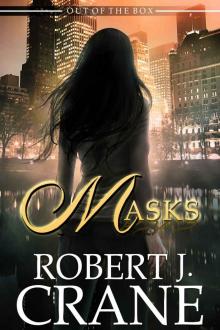 Masks (Out of the Box Book 9)
Masks (Out of the Box Book 9)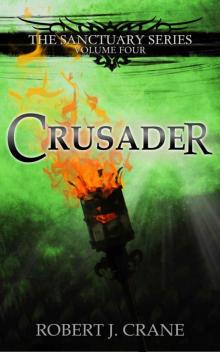 Crusader: The Sanctuary Series, Volume Four
Crusader: The Sanctuary Series, Volume Four Out of the Box 7 - Sea Change
Out of the Box 7 - Sea Change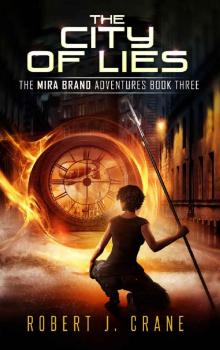 The City of Lies
The City of Lies Warlord
Warlord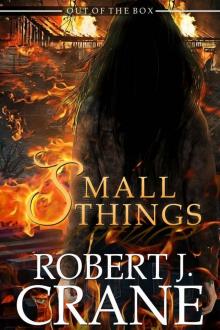 Small Things (Out of the Box Book 14)
Small Things (Out of the Box Book 14) The Sanctuary Series: Volume 03 - Champion
The Sanctuary Series: Volume 03 - Champion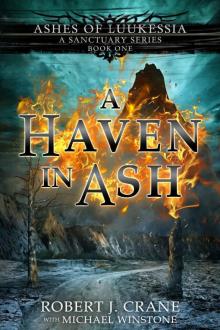 A Haven in Ash (A Sanctuary Series) (Ashes of Luukessia Book 1)
A Haven in Ash (A Sanctuary Series) (Ashes of Luukessia Book 1)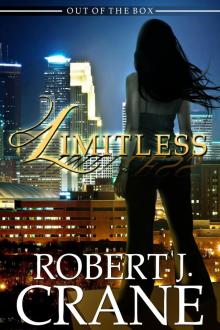 Limitless
Limitless Badder
Badder Legend
Legend The Girl in the Box 03 - Soulless
The Girl in the Box 03 - Soulless Grounded (Out of the Box Book 4)
Grounded (Out of the Box Book 4) In the Wind (Out of the Box Book 2)
In the Wind (Out of the Box Book 2)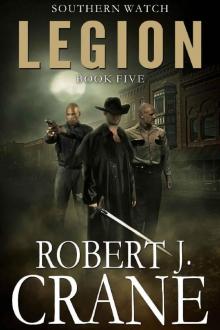 Legion (Southern Watch Book 5)
Legion (Southern Watch Book 5)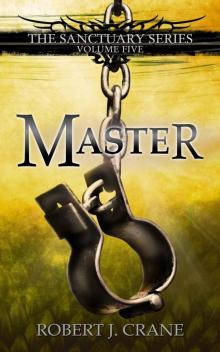 Master (Book 5)
Master (Book 5)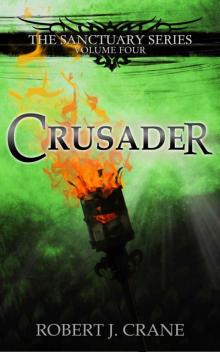 Crusader s-4
Crusader s-4 Starling (Southern Watch Book 6)
Starling (Southern Watch Book 6)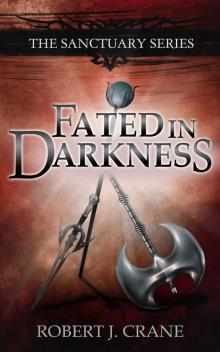 Sanctuary 5.5 - Fated in Darkness
Sanctuary 5.5 - Fated in Darkness